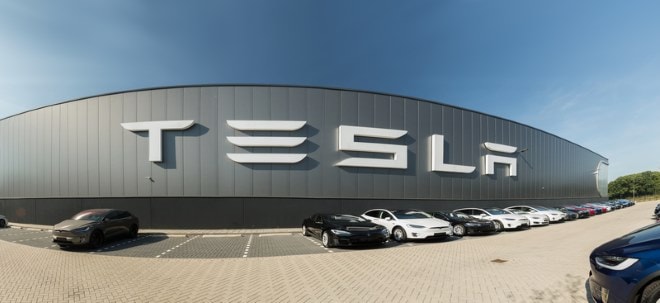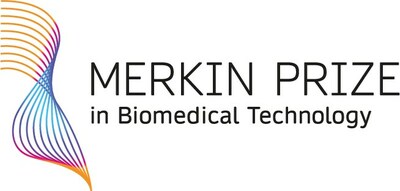2025 Merkin Prize in Biomedical Technology awarded to pioneers of CAR T-cell therapy
The winners are Carl June, Bruce Levine, Isabelle Rivière, and Michel Sadelain, who developed technology that reprograms patients' immune systems to target cancer, leading to several FDA-approved treatments given to over 45,000 cancer patients, including many who had exhausted all other options and thousands who experienced remissions.
CAMBRIDGE, Mass., May 21, 2025 /PRNewswire/ -- Four biomedical innovators — Carl June, Bruce Levine, Isabelle Rivière, and Michel Sadelain — have been jointly awarded the 2025 Richard N. Merkin Prize in Biomedical Technology for developing chimeric antigen receptor (CAR) T-cell therapy, a groundbreaking form of personalized cancer immunotherapy that turns T cells into tumor killers and has led to durable remissions in tens of thousands of patients with previously incurable blood cancers.
The $400,000 prize, to be shared among the four winners, recognizes their role in creating and advancing a technology that has reshaped how physicians treat leukemia, lymphoma, and multiple myeloma, and is now showing promise in treating autoimmune and infectious diseases. In CAR T-cell therapy for cancer, a patient's own immune cells are removed from their body, reprogrammed to attack tumor cells, and infused back in. More than 45,000 cancer patients worldwide have been treated with the therapy, extending their lives and, in many cases, delivering complete and sustained remissions to people who had exhausted all other options.
"The development of CAR T-cell technology is a defining moment in the history of biomedicine — one of the all-time amazing transformative breakthroughs, demonstrating how bold ideas in basic science can evolve into lifesaving therapies," said Richard Merkin, M.D., Founder and CEO of Heritage Provider Network, one of the country's largest physician-owned, physician-founded integrated health care systems. "Honoring the impact of these extraordinary scientists and their work that magnifies how we treat cancer and other serious diseases is the objective of the Merkin Prize. Their work puts us on the doorstep of finding cures to help millions."
The Merkin Prize recognizes novel technologies that have improved human health and is administered by the Broad Institute, one of the world's leading biomedical research institutes. All nominations for the 2025 Merkin Prize were evaluated by a selection committee composed of nine scientific leaders from academia and industry in the US and Europe. The winners will be honored in a prize ceremony later this year.
"This is one of the most transformative therapeutic breakthroughs in modern medicine," said Harold Varmus, Nobel laureate and chair of the Merkin Prize selection committee. "The work of June, Levine, Rivière, and Sadelain laid the foundation for a whole new class of treatments. Their contributions have saved lives and opened doors for future innovations that will continue to transform human health."
The power of a patient's immune system
The idea of redirecting a person's own immune system to recognize and kill cancer cells had been around for decades, but how to do it effectively and safely remained a mystery.
CAR T-cell therapy provided the answer. It involves extracting a patient's T cells from their blood and genetically altering them in a lab to introduce a new, synthetic receptor — called a chimeric antigen receptor, or CAR — that recognizes a protein on cancer cells. These "reprogrammed" cells are then re-infused into the patient, where they hunt down and destroy tumor cells with remarkable precision.
"There are many scientists who contributed to the basic groundwork for this technology, but it was really these four people who moved CAR T cells into a new age of robustness and rapid clinical translation," said Geneviève Almouzni, honorary director of the Curie Institute Research Center and a member of the Merkin Prize selection committee.
In the 1990s, Michel Sadelain — then at Memorial Sloan Kettering Cancer Center (MSKCC) — designed CARs by combining fragments of tumor-recognizing antibodies with the molecular machinery found in T-cell receptors. He showed that these synthetic CAR T cells could launch an immune response when they encountered the corresponding tumor protein, called CD19.
"The idea of genetically instructing T cells to specifically eliminate cancer cells was born in the 1980s, but it would take 20 years to bring it to patients," said Sadelain, who left MSKCC last year to become the Herbert and Florence Irving Professor of Medicine and director of the Columbia Initiative in Cell Engineering and Therapy. "Using retrovirus-mediated gene transfer technology, we focused on designing CAR molecules with effective signaling properties and identified CD19 as a prototypic target. The next step was to adapt cell culture techniques to enable the production of effective CAR T cells for infusion to patients."
The scientists also needed to prove that the cell therapy could work inside patients. Some researchers suspected that the body would attack and destroy the CAR T cells.
Encouragement came in the mid-1990s when Carl June of the University of Pennsylvania Perelman School of Medicine showed for the first time that T cells engineered to resist HIV infection could not only survive in the human body, but persist long enough to trigger immune responses. That ability to stick around, which is critical for attacking cancer over time, was another turning point.
"Our initial work with engineered T cells in HIV patients revealed that these cells could persist in the body far longer than anticipated," said June, who is the Richard W. Vague Professor in Immunotherapy and director of the Center for Cellular Immunotherapies at Penn. "This unexpected durability sparked the realization that we could harness the immune system to combat cancer in a profound way."
Turning T cells into tumor killers
Over the next two decades, two teams of scientists — June and Bruce Levine at University of Pennsylvania, and Sadelain and Isabelle Rivière then at Memorial Sloan Kettering Cancer Center — worked out how to turn CAR T cells into a scalable, personalized therapy for cancer.
June and Levine developed ways to collect a patient's T cells, reprogram them in the lab to recognize cancer, and grow them in large enough numbers to use as a targeted therapy. By that time, Sadelain and Rivière had already discovered that adding a special "boosting" signal to the engineered cells helped them survive even longer and attack cancer more forcefully. That boosting signal is a staple of all CARs used today. Sadelain and Rivière also developed safe and reliable ways to produce these cells for use in patients.
In the early 2000s, both teams began preparing for clinical trials. In 2007, Sadelain and Rivière treated their first patient with leukemia, and in 2009, published details on how they manufactured personalized CAR T cells to treat patients with aggressive leukemia. After their clinical results, their technology was licensed to Juno Therapeutics (later acquired by Bristol Myers Squibb.) A similar CAR from another company, Kite Pharmaceuticals (now a Gilead company), was approved by the FDA in 2017 as the second commercial CAR T-cell therapy.
"By combining the powers of natural cell biology with genetic engineering and cell manufacturing, we were able to unlock the therapeutic potency of T cells in patients with refractory leukemias," said Rivière, now vice president of Cell Therapy Sciences at Takeda. "We treated our first patient with CD19 CAR T cells back in 2007. We could not detect leukemic cells in the patient's bone marrow just three weeks after administering the CAR T cells. We ran the assay three times to convince ourselves that the tumor cells were indeed gone. That was the 'eureka' moment — a moment of total marvel when we contemplated such an outcome."
In 2010, cells grown by June and Levine were used to treat leukemia and lymphoma patients. A single dose of the engineered cells wiped out signs of disease. In some cases, patients treated with the new therapy remained cancer-free for years. In 2012, the University of Pennsylvania team and Novartis launched a collaboration to further develop the technology, which led to the FDA approval for the first commercial CAR T-cell therapy in 2017.
"In the first patients treated in our trials, we realized that something very special was happening," said Levine, who is the Barbara and Edward Netter Professor in Cancer Gene Therapy and founding director of the Cell and Vaccine Production Facility at University of Pennsylvania. "As the data began coming in on reduction in leukemia in the patients and expansion of the CAR T cells in the body, what once was a dream gave us hope for patients with relapsed and refractory blood cancers."
From concept to cure
Since 2017, seven CAR T-cell therapies have received FDA approval for the treatment of blood cancers, including acute lymphoblastic leukemia, large B-cell lymphoma, and multiple myeloma.
These commercially produced therapies, while they have been refined in recent years, are all based on the original CAR T-cell design and production methods developed by June, Levine, Rivière, and Sadelain.
Beyond cancer, the reach of CAR T-cell technology is rapidly expanding. Early clinical studies have shown that CAR T cells can induce lasting remission in autoimmune diseases, including systemic lupus erythematosus, signaling a potential revolution in how conditions like this are treated. Researchers are also exploring new targets for CAR T cells in infectious diseases, fibrosis, and even aging-related conditions.
As next-generation CARs are developed and manufacturing becomes more scalable, the therapy's reach is expected to widen further — bringing the promise of precision immunotherapy to even more patients around the globe.
About the Merkin Family Foundation
The Merkin Family Foundation was founded by visionary health care executive Richard Merkin, MD.
Richard Merkin, MD is the founder and CEO of Heritage Provider Network, Inc. (HPN). HPN is one of the largest physician founded and physician owned managed care organizations in the country dedicated to value-based healthcare delivery improvements. HPN develops and manages coordinated, patient-doctor centric, integrated health care systems that offer some of the strongest solutions for the future of health, care, and cost in the United States. HPN and its affiliates operate in New York, California, and Arizona, providing high-quality, cost-effective healthcare with over one million patient members. HPN is dedicated to quality, affordable health care, and putting patients' wellness first.
About Broad Institute
Broad Institute was launched in 2004 to empower this generation of scientists to transform medicine. The Broad Institute seeks to describe the molecular components of life and their connections; discover the molecular basis of major human diseases; develop approaches to diagnostics and therapeutics; and disseminate discoveries, tools, methods, and data to the entire scientific community.
Founded by MIT, Harvard, Harvard-affiliated hospitals, and the visionary Los Angeles philanthropists Eli and Edythe L. Broad, the Broad Institute includes faculty, professional staff, and students from throughout the MIT and Harvard biomedical research communities and beyond, with collaborations spanning over 100 private and public institutions in more than 40 countries worldwide.
![]() View original content to download multimedia:https://www.prnewswire.com/news-releases/2025-merkin-prize-in-biomedical-technology-awarded-to-pioneers-of-car-t-cell-therapy-302462133.html
View original content to download multimedia:https://www.prnewswire.com/news-releases/2025-merkin-prize-in-biomedical-technology-awarded-to-pioneers-of-car-t-cell-therapy-302462133.html
SOURCE Broad Institute



